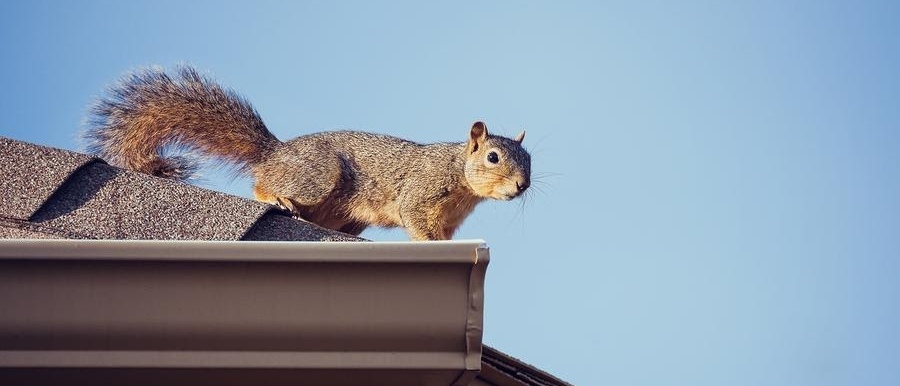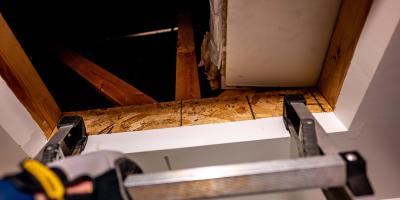Squirrels: They’re Everywhere. What Can You Do?

As the days have grown shorter and the nights longer, most of us are quick to take advantage of any opportunity to get outside and enjoy some sunlight and fresh air. In that case, you might have noticed that it seems like squirrels are everywhere.
Maybe your daily walk with your best four-legged friend suddenly feels overcrowded by the squirrel population or you’ve noticed an uptick in squirrel activity scampering across your yard.
Whatever the case, squirrel populations are indeed elevated; the good news, however, is that they aren’t really pests for most of us… until they enter our attics. That’s when the game changes and we’ve got the strategies that will help solve your squirrel situation.
SOS: We’ve Got Squirrels!
As if the holidays aren’t stressful enough, you’ve discovered squirrels in your attic. We might all have gotten a chuckle from Clark Griswold’s squirrel-infested Christmas tree, but when the joke’s on us… Well, it’s just not funny.
Don’t panic. When it comes to squirrels shacking up in your house this holiday, we know how to get them out. But first, here’s a quick cheat sheet featuring common questions about squirrel behavior that we’re often asked, which might explain how they got into your home to begin with.
Why Did Squirrels Descend on My Domicile?
When it comes to the reason why squirrels get inside your home, the thing to remember is that squirrels are really no different than mice or rats: The temperatures have dropped considerably since autumn, and they want safe spaces to weather the winter elements.
As the air turns chillier, squirrels are eager to find warm shelter away from potential predators, and your attic makes for the perfect spot.
How Did Squirrels Get into My Home?
Squirrels are quite capable of finding – and sometimes even creating – ways inside your home. On a mission to secure shelter, warmth, and food, squirrels will seek out potential weak spots in your home’s structure, including loose siding, shingles, basement ducts, and even chimneys. And if they are desperate enough, they’re perfectly capable of chewing their way in if an existing aperture doesn’t already exist.
Not Sure? These Are Surefire Signs You’ve Got Squirrels…
While any manner of pest could be hunkering down in your home, typically you can distinguish squirrels from mice or bats simply from the sounds they make. Squirrels tend to be considerably louder than other pests you might find nesting in your attic or elsewhere. Listen for persistent scurrying sounds – during the day or night – along with any scratching or chewing, perhaps made evident by teeth marks found on wiring or wooden structures.
Play “Guess that Paw,” and see if you can ID the winner. Squirrels have distinct footprints, owing to the fact that their front paws feature four toes, with the back sporting five.
Spoiler Alert (And We Do Mean “Spoil!”):
If you encounter foul odors, particularly any emitted from the vents in your home, these might be attributed to decaying squirrels that somehow lost their way between the outdoors and your home’s safe sheltered spaces.
Pro-Tip: You Need a Pro!
When it comes to dealing with squirrels in your home, the name of the game is exclusion, which requires a pest management professional. Squirrels will chew through the electrical wiring in your home, without apology, and can also wreak havoc on your insulation.
These concerns are, of course, secondary to the threat against human health and safety presented by the accumulation of squirrel wastes like feces and urine.
Our squirrel control service features one-way excluder doors that help squirrels return to the outdoors, while keeping them from returning to your home. Once removed, our team will work to seal up any proven or potential access points which allowed the squirrels entry in the first place.
Contact the JP Pest Services team for expert squirrel exclusion this season and year-round!



